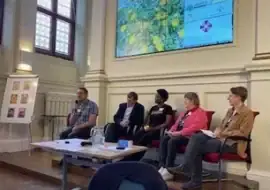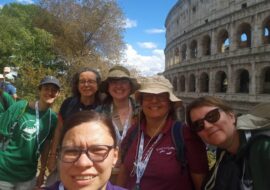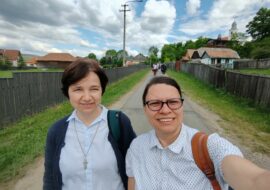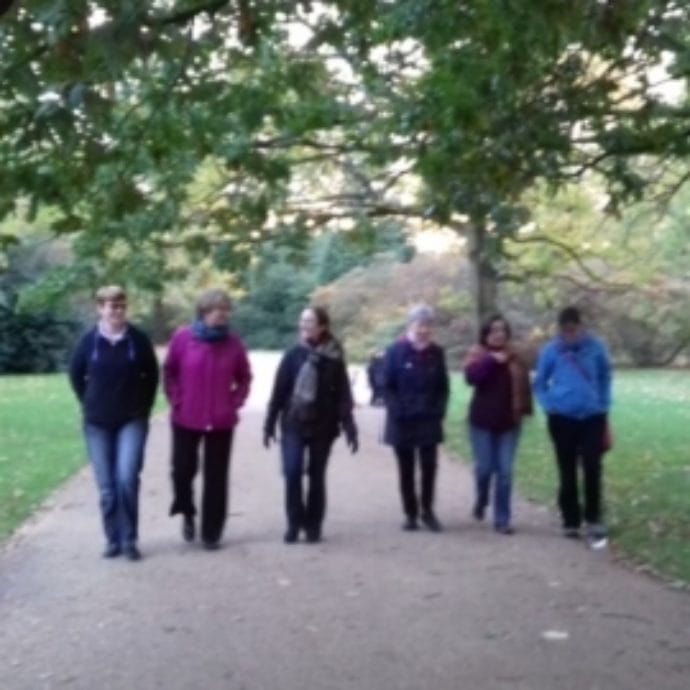A reflection by Teresa White, fcJ first appeared in the Notebook section of Church Times, on the joys and challenges of the religious life
Sister Act?
Nuns seem to hold a special place in the popular imagination. Say the word “nun”, and people picture a saintly woman, usually veiled and wearing a medieval, monastic-style habit, eyes looking heavenward and hands meekly folded in prayer. However we think of them, nuns still exist (though usually known nowadays as religious Sisters); but, given our modern garb, unlike Whoopi Goldberg, we do not stand out in a crowd.
Secularisation is widespread today, and, in many parts of the world, churches are closing at an alarming rate. Against this scenario, is the religious life still meaningful? Is a religious Sister, rooted in the Church and nourished by the charism of her order, called to be a sign of hope in a fractured Christian world? Or is she wasting her time? Has the central aspect of her life, the spiritual domain, become irrelevant? Is that why, these days, religious orders have few new recruits, or none at all?
Vincent van Gogh once said that, for him, being an artist meant I am seeking, I am striving, I am in it with all my heart. Perhaps, in this sense, religious men and women are “artists”. Day in, day out, they give their very selves to a way of life in which the inner experience of God is primary and energising. Living like everyone else in the tangible, material world, they acknowledge the importance of the transcendent, as they try to make the world more fully human and open to God. Their deepest desire is to pass on the message of Jesus: Love one another; just as I have loved you, you also must love one another. By this love you have for one another, everyone will know that you are my disciples (John 13: 34, 35).
A holy life
Are you ready for more joy than you’d believe? asks the Russian poet Olga Sedakova. The religious life has a mystical core: contemplation – the entrance of the human person into the sphere of God. But why would anyone choose such a life? Holiness, Pope Francis assured us, is attractive: It will take away none of your energy, vitality or joy. On the contrary, you will become what the Father had in mind when he created you, and you will be faithful to your deepest self (Gaudete et Exsultate, 2018).
Are you ready for more joy than you’d believe?
Russian poet Olga Sedakova.
Holiness includes cultivating a habitual openness to the transcendent (ibid.), but, once we recognise that there is in every human heart a profound longing that God alone can satisfy, openness to God becomes second nature to us. Prayer, of course, is essential, but, Francis continued, it need not be lengthy or involve intense emotions. So, yes, we pray — but we remember that a holy life need not be tedious and dull: it can, and often does, bring joy and genuine contentment.
A God-centred life
Sometimes, in our communities, we live close to people that otherwise we might not even want to talk to, and yet there is a bond that unites us: we have a common purpose and a common mind (Philippians 2.2).
Amid the noise, stress, and superficiality of the over-technologised lifestyle of so many people today, our life is intentionally God-centred. We accept and care for one another, sharing a home, sharing food, and sharing household tasks; and prayer, individual and communal, is at the heart of our life together.
We witness to spiritual values, believing that our post-pandemic, violent, unjust world has a deep need of the love and kindness of God. We are aware, too, that experiences of God happen not only in moments of contemplation, but also in humdrum and hidden fidelities; in the concrete experiences of everyday life.
Sometimes, our community life is happy and joyful, full of fun and laughter. But there can be bleak and lonely times, too, when nothing seems right, and everything is difficult. Whatever happens, we know we are not alone, and we encourage and support one another in the good times and the bad, the happy times and the sad.
 A vowed life
A vowed life
Religious respond to God’s call by a primary life-commitment that is both exclusive and enduring. We believe that prayer is an invitation to God to intervene in our lives, and, in making the traditional vows of poverty, chastity, and obedience, we open our hearts to God.
That is why, after a period of formation, consecration to the religious life is sealed by solemn promises, confirming our desire to follow God’s call all the days of our lives. Poverty is understood as an expression of our radical dependence on God; chastity represents the primacy of the love of God in our lives; and obedience symbolises our desire to seek God’s will by the way we live and the things we do.
I think it would be true to say that a profound, never-to-be-forgotten experience of God is at the heart of every religious vocation. That happened for me when, at the age of 20, I responded to what I felt was a personal invitation, on God’s initiative, to enter the religious life. Through the work of education, I committed myself to the values of the gospel, and I found that I could walk with hope, even in dark times, not knowing precisely how things would turn out, but trusting that God is present in all that happens to me and to our world.
Ministry
Religious believe that love is our God-given identity, and our ministry is to reveal the loving face of God as we take our place in a struggling Church in the violent, destructive, war-torn world of the third millennium. Our function is to bring to visibility what is Good News for the present time — not only by reaching out to unbelievers, but also by witnessing to the values of the reign of God: the growth of free and integrated persons, and the experience of communion and solidarity with the whole of creation. As the hymn puts it, I will weep when you are weeping, when you laugh, I’ll laugh with you.
Sometimes, we ask ourselves, who are we to bring good news to others and wipe away their tears? We can do these things only because we walk with Christ. In the constant change and rich experiences of the global society in which we live, we trust that God is reaching out to us in love, leading us beyond hatreds, enmities, lies, and broken promises.
The language of love
We believe that we are called to share God’s love with everyone we meet, especially the so-called “outcasts” of society. From my long experience of more than 60 years as a religious, I think that the way in which we do this is quite simple: we speak the language of love in the present tense.
We value the time-honoured elements of the religious life: simple, sustainable living in community; daily prayer; celebrating the eucharist; spiritual reading; study; and regular retreats. At the same time, through our varied ministries, we look to widen our circle of love in order to encounter and embrace all people.
Our message is God is love, and those who live in love live in God and God lives in them (1 John 4.16).
Image by Jacquie Klose – stock.adobe.com
This reflection by Teresa White, fcJ has appeared in Church Times in 19 July 2025. Sr Teresa a former teacher, she spent many years in the ministry of spirituality at Katherine House, an FCJ retreat and conference centre in Salford, UK.
Read more of Sr Teresa’s contributions in our website, in Thinking Faith, and in Church Times.





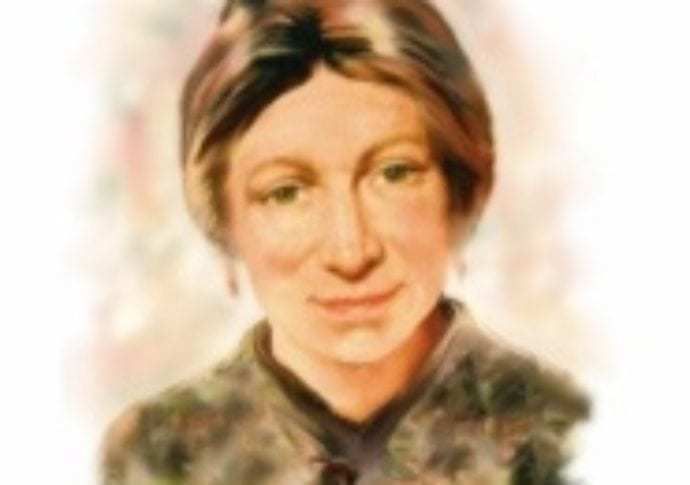
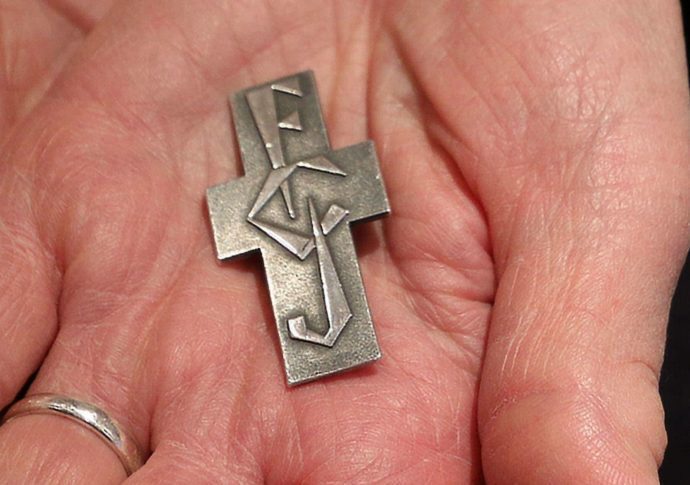
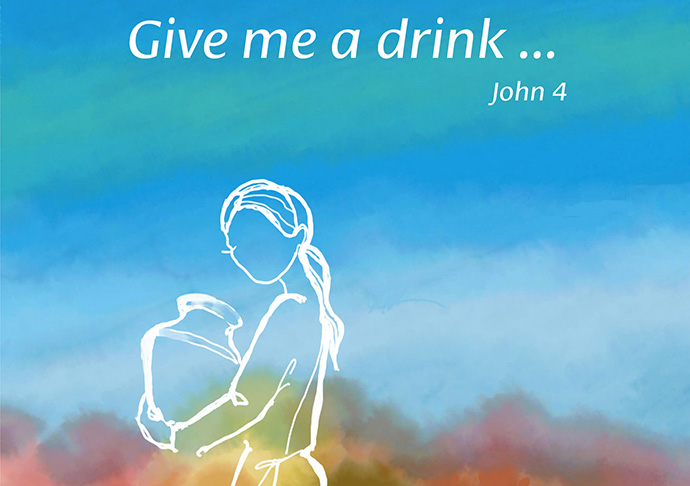
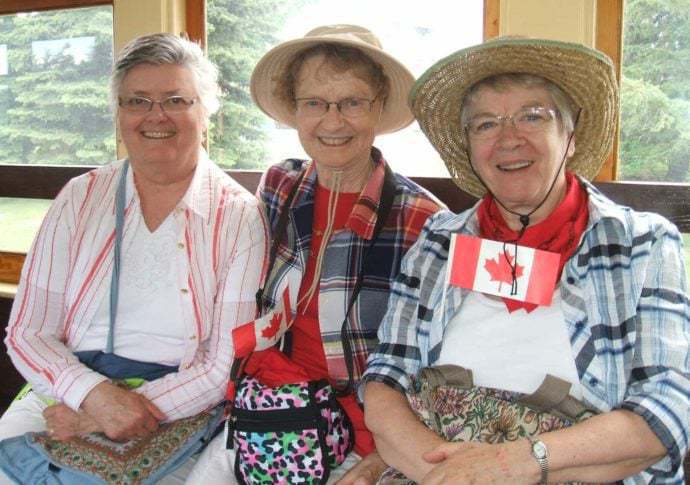
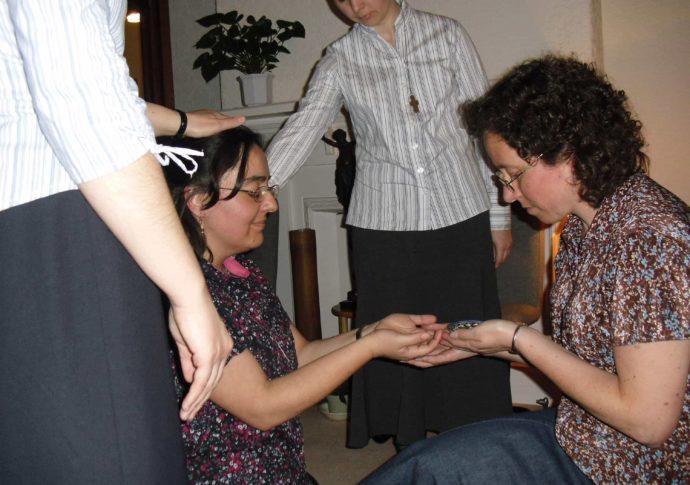
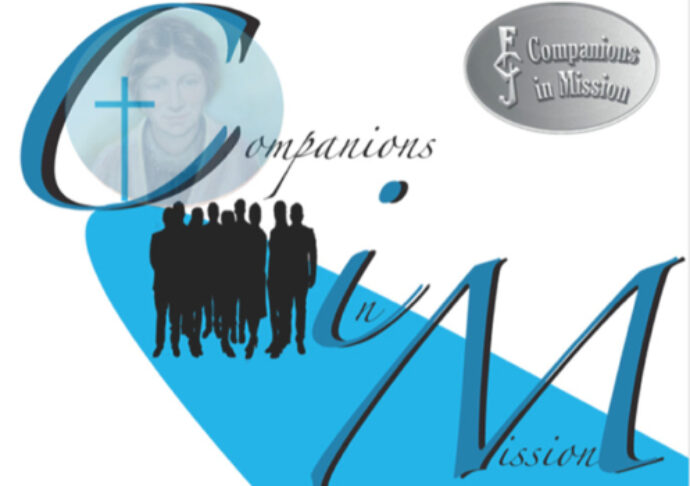
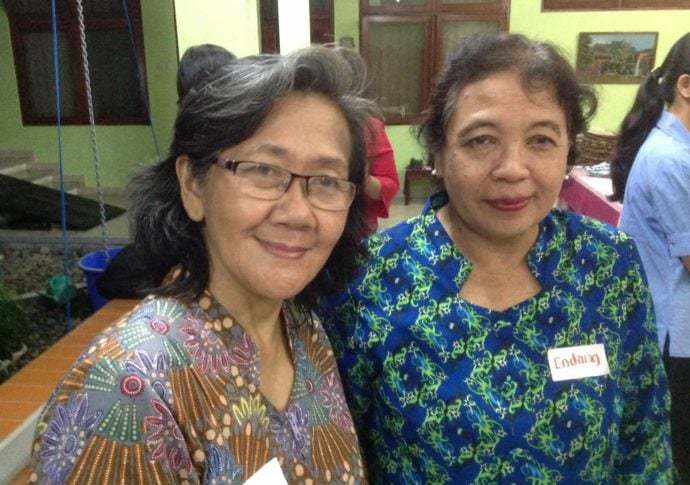

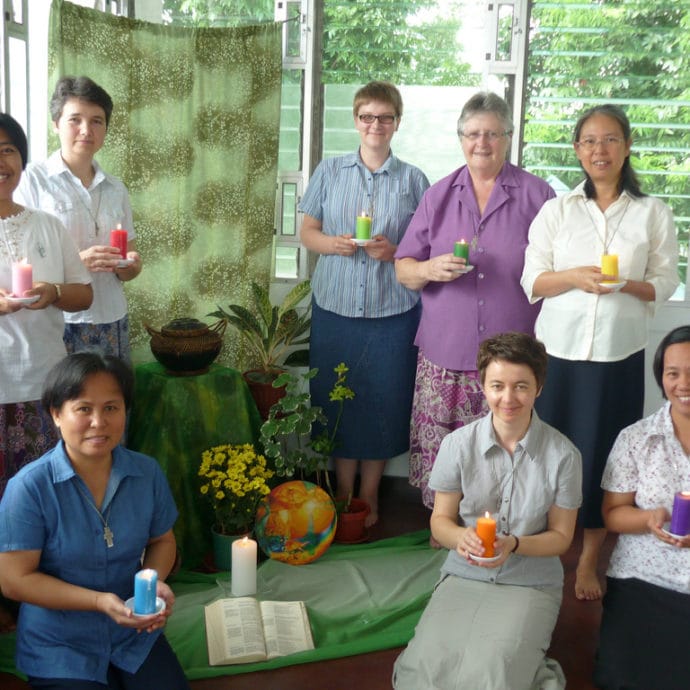
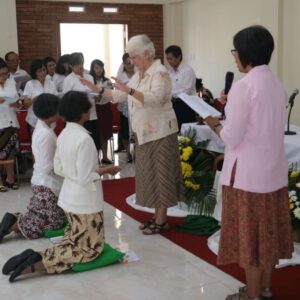 A vowed life
A vowed life